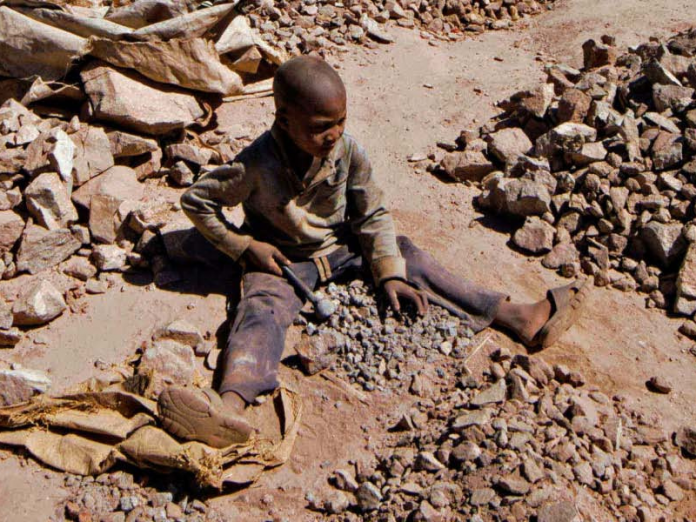This week nearly 27,000 clean energy professionals will descend on the Las Vegas Strip for the annual RE Plus renewable energy Conference. The event includes thousands of exhibitors and a host of presentations with a keynote from Georgia Senator Jon Ossoff. The Senator will undoubtedly tout the expansion of solar energy industry jobs in his state by Korean manufacturer Hanwha Q-Cells, while conveniently ignoring allegations of Hanwha’s deep connections to reported forced labor in the Xinjiang region in China.
It’s been a little more than a year since the groundbreaking human rights law, the Uyghur Forced Labor Prevention Act (UFLPA), went into effect. The law created a rebuttable presumption that all goods manufactured in whole or in part in the Xinjiang region of China use forced labor and are thus not admissible into U.S. commerce. While U.S. Customs and Border Protection (CBP), the law enforcement agency tasked with enforcement of the law, has done an admirable job at detaining cargo to assess applicability of law to certain goods, the scope of enforcement is lacking and focused on a very small number of importers and ignores many more manufacturers widely known to use key materials from China that have very high risk of origin in part from Xinjiang.
Perhaps the most glaring omission among CBP’s UFLPA enforcement is the well-connected Hanwha Q-cells. There is very clear open source data that ties the company to the Xinjiang region of China. Despite the glaring connections to the region, Hanwha executive Vitaly Lee has repeatedly claimed the company modules are “forced labor free.”
Just last month, another damning report dropped from Sheffield Hellam University titled “Over-Exposed: Uyghur Region Exposure Assessment for Solar Industry Sourcing”, which found Q-Cells to have a “very high” risk of ties to forced labor in Xinjiang. Specifically, the Sheffield Report found Meike Solar Technology, a Chinese company which gets raw material from Xinjiang, reported Q-Cells as one of its largest customers in the first half of 2022, even though Q-Cells claims it cut off the supplier’s relationship in 2021. The initial Sheffield Report, In Broad Daylight, focusing on large Chinese manufacturers like Longi, Trina and JinkoSolar, appears to have influenced CBP’s targeting but it remains to be seen if this updated report will have the same effect.
It’s difficult to ascertain whether the lack of enforcement is due to the high-profile political visits, including Vice President Kamala Harris, an upcoming visit from President Biden, and of course Senator Ossoff. Political connections, however, should never serve as a means to avoid the law or get a free pass from CBP detentions and UFLPA scrutiny. Unfortunately, the Biden administration claims it wants America to lead in “clean energy” production, but is instead blocking American producers from developing the critical, rare-earth minerals to make it happen domestically.
Ironically, the political cover seems to be bipartisan. Another company that has escaped CBP scrutiny is Canadian Solar, while often portraying itself as Canadian the company is, in fact, wholly Chinese from its management to its manufacturing. Recently, Canadian Solar announced a $250 million 5GW solar manufacturing facility in Mesquite, Texas. This project was heralded by both Governor Greg Abbott and Senator Ted Cruz despite Canadian Solar’s ties to the Xinjiang region and potential violations of the UFLPA. The Sheffield Report determined Canadian Solar has a “high” risk of exposure to Xinjiang.
Fortunately, CBP’s lack of universal enforcement has not gone unnoticed by everyone in Congress. Rep. Carol Miller (R-W.Va.) at a hearing before the Ways and Means Committee called out JA Solar for attempting to avoid the UFLPA. Specifically, she noted an executive with JA Solar, another company with “very high” exposure to Xinjiang, was caught on tape discussing port-shopping as one method the company employs to avoid UFLPA detentions.
In a public webinar CBP’s Trade Remedy Law Enforcement Executive Director acknowledged companies were employing this exact UFLPA enforcement avoidance technique, along with changing the name of the exporting entity and several other salacious maneuvers. CBP cannot allow this type of evasion to continue, especially when Congress has appropriated more than $100 Million to enforce the UFLPA and combat forced labor globally.
Unfortunately, at this year’s RE Plus there will be plenty of solar companies –including the title sponsor Maxeon, another very high-risk manufacturer according to the Sheffield Hallem report – enjoying the Las Vegas sun while escaping CBP scrutiny despite serious forced labor allegations. Even in Sin City political relationships and high-profile sponsorships should not be currency to evade U.S. trade laws. CBP must work to ensure the UFLPA is implemented forcefully and equally.
Carrie Sheffield is a senior policy analyst for the Center for the Center for Economic Opportunity at Independent Women’s Forum.
Originally published by RealClearEnergy. Republished with permission.
For more on solar power, click here.
For more on child and slave labor for green energy, click here.


























